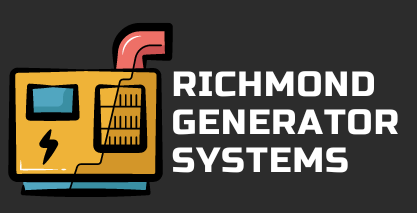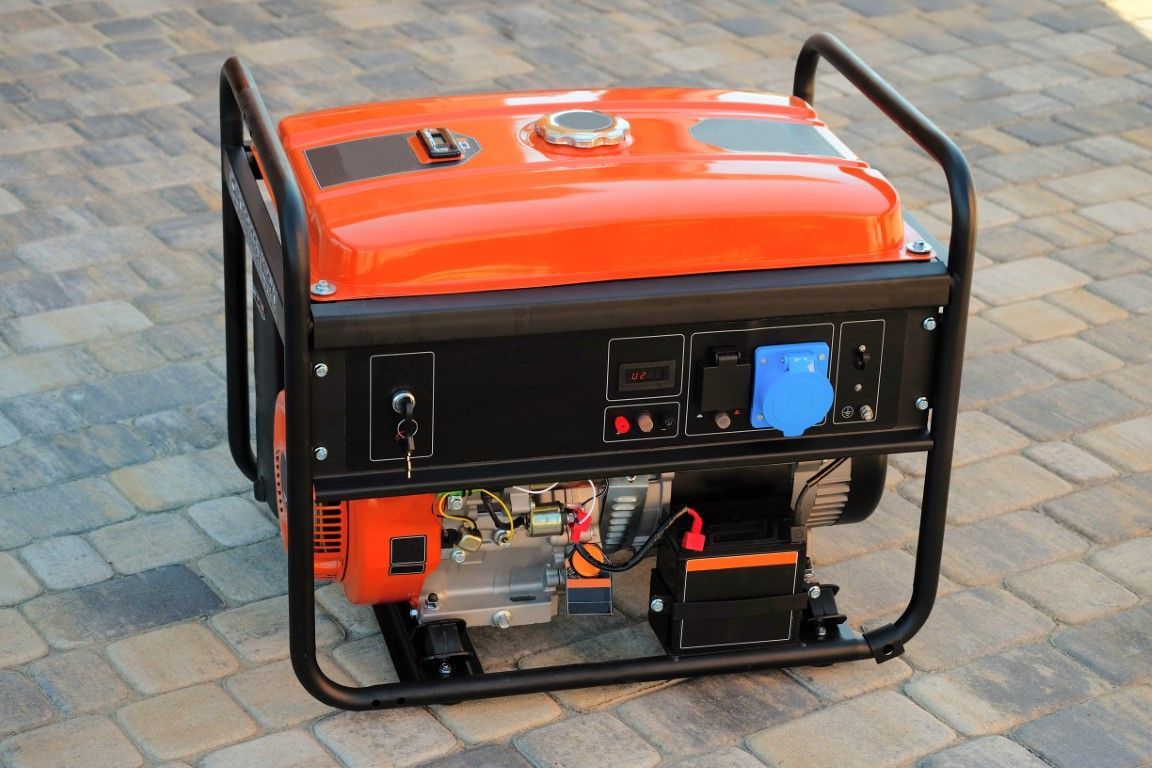
Portable Generators in Richmond VA
A portable generator is a versatile power source designed to provide electricity when you’re away from the grid or during an outage. These generators are compact and movable, making them ideal for various uses. The primary benefit of a portable generator is its ability to supply power in emergencies, such as during a power outage due to storms or other disruptions. They are also useful for outdoor activities like camping or tailgating, where access to electrical outlets is limited.
Another significant advantage is the convenience of having power wherever you need it. Portable generators are designed to be user-friendly, with easy start mechanisms and various power output options. They offer peace of mind by ensuring that essential appliances and devices can continue to operate even when the main power supply is unavailable.
Different Types and Key Features to Consider
When choosing a portable generator, it's essential to understand the different types available and their key features. The main types include:
- Inverter Generators: These are known for their quiet operation and stable power output, making them suitable for sensitive electronics like laptops and smartphones. They are more compact and fuel-efficient but typically offer less power than traditional generators.
- Conventional Generators: These are more powerful and generally cost less than inverter generators. They are ideal for powering larger appliances and tools but tend to be louder and less fuel-efficient.
- Dual-Fuel Generators: As the name suggests, these can operate on either gasoline or propane, offering flexibility in fuel choice and extended run times.

We will get back to you as soon as possible.
Please try again later.
When evaluating a portable generator, consider features such as:
- Power Output: Ensure the generator has enough wattage to meet your needs, whether for home backup or outdoor use.
- Run Time: Check how long the generator can operate on a full tank of fuel, which is crucial for prolonged outages or extended activities.
- Portability: Look for models with wheels and handles for easy transport.
- Noise Level: If you plan to use the generator in residential areas or during quiet activities, choose a model with a low noise rating.
- Safety Features: Features like automatic shutoff and circuit breakers can protect both the generator and connected devices.
Importance and Relevance in Various Scenarios
Portable generators play a crucial role in several scenarios. During power outages, they can keep essential home appliances running, such as refrigerators, heaters, and medical equipment. This is particularly important in areas where storms and severe weather can lead to unexpected power disruptions.
For outdoor enthusiasts, portable generators provide a reliable power source for camping trips, RVs, and tailgating events. They can power lights, small appliances, and entertainment devices, enhancing the experience of being outdoors.
In addition, portable generators are valuable for construction sites and other work environments where access to electricity may be limited. They can power tools and equipment, contributing to productivity and efficiency on the job.
Maintenance and Care
Proper maintenance is essential to ensure your portable generator operates efficiently and has a long lifespan. Regular maintenance tasks include:
- Checking the Oil: Change the oil periodically according to the manufacturer’s recommendations to keep the engine running smoothly.
- Inspecting the Air Filter: Clean or replace the air filter to ensure optimal performance and fuel efficiency.
- Monitoring the Fuel System: Check for leaks and ensure the fuel is fresh to avoid engine issues.
- Testing the Battery: If your generator has an electric start, regularly test and maintain the battery to ensure reliable starting.
- Cleaning the Generator: Keep the generator clean and free of debris to prevent overheating and maintain performance.
Following the manufacturer’s maintenance schedule and keeping a log of servicing activities can help prevent problems and extend the life of your generator.
Buying Guide
When purchasing a portable generator in Richmond, VA, consider the following factors to make an informed decision:
- Determine Your Power Needs: Calculate the total wattage required for your essential appliances and choose a generator that can handle that load.
- Evaluate Fuel Efficiency: Consider how often you will need to refuel the generator and choose a model with efficient fuel consumption.
- Check for Warranty and Support: Look for a generator with a good warranty and reliable customer support to address any issues that may arise.
- Read Reviews: Research customer reviews and ratings to gauge the reliability and performance of different models.
- Compare Prices: While it’s important to find a generator that fits your budget, also consider the long-term value and features of the model.
Applications of Portable Generators
Portable generators are adaptable to a variety of applications. In residential settings, they provide backup power during outages, ensuring that crucial systems remain operational. For outdoor enthusiasts, they enable the use of electrical devices and appliances in remote locations, enhancing comfort and convenience.
In commercial and industrial settings, portable generators are invaluable for powering equipment on construction sites or temporary work sites. They can also be used at events and gatherings where temporary power is needed for lighting, sound systems, and other equipment.
If you’re looking for a reliable portable generator in Richmond, VA, or need assistance in choosing the right model for your needs, feel free to reach out to us. Our team of experts is here to help you select, purchase, and maintain the perfect generator for your situation. Contact us today to learn more about our products and services or to get a personalized recommendation tailored to your requirements.
Portable Generators vs. Standby Generators: What’s the Difference?
In today’s world, having a reliable power source is more important than ever. Whether you’re preparing for unexpected outages or looking to power your home during a renovation, generators play a crucial role. But with so many options available, choosing the right one can be challenging. Portable and standby generators are two popular types, each serving different needs. Understanding their differences can help you make an informed decision about which generator best suits your requirements.

Portable Generators
Portable generators are versatile and can be used in various situations. They are typically smaller, lighter, and more affordable than standby generators. Designed to be easily moved from one location to another, they are ideal for camping trips, outdoor events, or as an emergency power source during short-term outages.
Mobility and Size
As the name suggests, portable generators can be moved easily. They usually come with wheels or handles to aid in transportation. Their compact size makes them suitable for both residential and recreational uses.
Power Output
Portable generators come in various sizes, providing power outputs that range from a few hundred watts to several thousand watts. This range allows you to choose a generator that fits your specific needs, whether it’s for powering essential appliances or running power tools.
Runtime and Fuel
These generators typically run on gasoline, propane, or diesel. The runtime depends on the fuel tank size and the generator's load. For longer outages, you may need to refuel periodically.
Installation and Operation
Portable generators do not require permanent installation. They can be used immediately after setup, which involves connecting them to appliances or tools. They are generally easy to operate but should be placed outdoors to avoid harmful fumes.
Standby Generators
Standby generators are designed for permanent installation and are ideal for providing continuous power to your home or business. They are more substantial and expensive than portable generators but offer numerous advantages for long-term use.
Automatic Operation
Standby generators are equipped with an automatic transfer switch that detects power outages and starts the generator without any manual intervention. This feature ensures that your home remains powered even when you’re away.
Power Output
Standby generators are available in various sizes and can provide sufficient power to run an entire household or commercial establishment. They are capable of handling large loads and multiple appliances simultaneously.
Fuel Options
These generators often run on natural gas or propane, which is stored in a dedicated tank. This setup allows for an extended runtime, often lasting for days or weeks without refueling.
Installation and Maintenance
Standby generators require professional installation. They are connected to your home’s electrical system and are installed with a transfer switch. Regular maintenance is necessary to ensure they function properly during an outage.
Choosing between a portable and a standby generator depends on your specific needs and circumstances. Whether you require the flexibility of a portable generator or the reliability of a standby system, understanding their differences will help you make the right choice.
For more information or to discuss your generator needs, don’t hesitate to contact us. Our team is here to assist you in finding the perfect generator solution for your home or business. Reach out today to ensure you’re prepared for any power situation.
Best Practices for Storing and Protecting Your Portable Generator
Portable generators are invaluable tools, especially during power outages or outdoor activities. Proper care and storage are essential to ensure they operate reliably when needed and last for years. This guide covers the best practices for storing and protecting your portable generator, helping you maintain its performance and safety.
Choose the Right Storage Location
Select a dry, well-ventilated area for your generator. Avoid storing it in damp or enclosed spaces, as moisture can lead to rust and damage electrical components. A covered outdoor shed or garage with adequate airflow is ideal. Ensure the area is away from direct sunlight, which can cause deterioration of the generator's parts.
Keep It Clean
Regularly clean your generator to prevent dust and debris buildup. Use a soft cloth and mild detergent to wipe down the exterior. For stubborn dirt, a gentle brush can help. Ensure the generator is off and cool before cleaning to avoid accidents. Keeping it clean helps in maintaining its functionality and prolonging its lifespan.
Perform Regular Maintenance
Follow the manufacturer’s maintenance schedule. This includes changing the oil, replacing the air filter, and inspecting the spark plugs. Regular maintenance ensures the generator operates efficiently and reduces the risk of breakdowns. Keeping a maintenance log can help you stay on track with necessary upkeep.
Fuel Management
If your generator runs on gasoline, empty the fuel tank before storing it for an extended period. Gasoline can degrade over time, leading to starting issues. Use a fuel stabilizer if you plan to keep fuel in the tank. For diesel generators, ensure the fuel is stored in a sealed, clean container to avoid contamination.
Protect from the Elements
Use a weather-resistant cover to protect your generator from rain, snow, and dust. Ensure the cover is breathable to prevent moisture buildup, which can lead to rust and mold. During winter, store the generator in a warm place to prevent freezing and potential damage to the engine and other components.
Check for Pests
Inspect your generator periodically for signs of pests, such as rodents or insects. Pests can cause damage by chewing through wires and other parts. Using pest deterrents or placing traps around the storage area can help keep these unwanted visitors at bay.
Safe Storage Practices
Ensure your generator is stored away from flammable materials and chemicals. Proper storage practices minimize the risk of fire hazards. Additionally, keep the generator in a secure location to prevent theft, especially if you store it outside.
Inspect Before Use
Before using your generator after a period of storage, perform a thorough inspection. Check the fuel system, battery, and electrical connections. Look for any signs of wear or damage. Testing the generator in a controlled environment ensures it’s ready for use when you need it.
For expert advice on maintaining and protecting your portable generator, or if you need assistance with repairs and servicing, contact us today. Our team of professionals is here to help you ensure your generator remains in top condition, providing reliable power when you need it most. Call us to learn more and schedule a consultation.
Let's Connect!
Looking for reliable power solutions? Look no further than us! Our expert team is here to help you understand how whole house generators work and why they're essential. Don't get caught in the dark! Check out our buyer's guide and discover the reasons for the loss of power. Contact us today for a consultation!